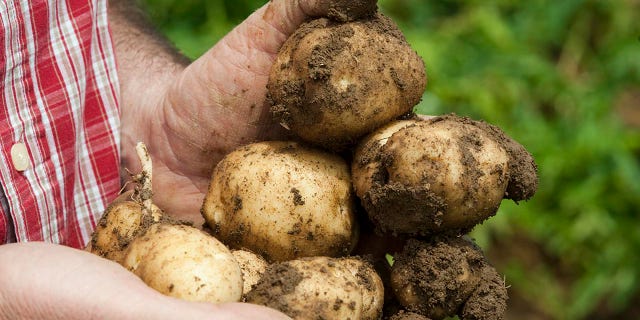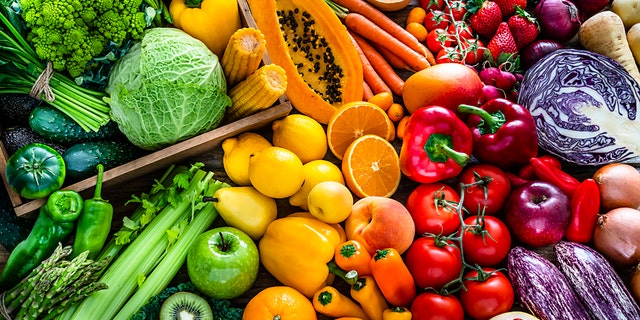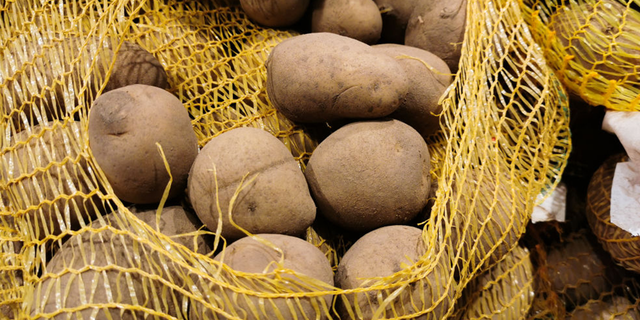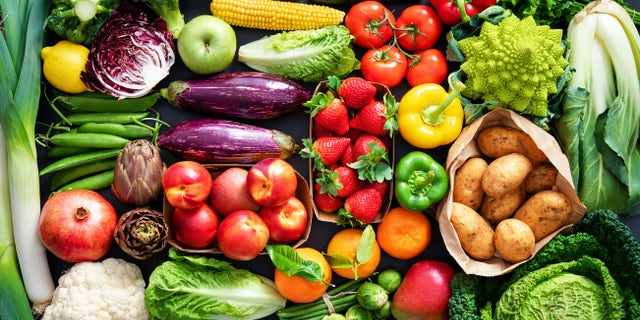A new study takes pity on a very infamous vegetable: the potato.
It turns out that it’s not the vegetable itself that’s associated with type 2 diabetes, but how the potato is cooked, including what people add to it.
The study was published in Diabetes Care, a peer-reviewed American Diabetes Association journal for health care providers.
An apple a day … and 4 other great fall foods that are healthy and delicious
Previous studies have shown an association between diabetes and total potato intake.
A team of Australian researchers led by Dr. Nicola Bondono of the Institute for Nutrition and Health Innovations at Edith Cowan University investigated the relationship between vegetable intake and incidence of type 2 diabetes.
Participants in the new study completed a 192-item “food frequency questionnaire” at the beginning of the study.
(iStock)
The researchers also looked at the relationship between potato consumption and the incidence of type 2 diabetes.
Over 54,000 participants aged 50 to 64 years were recruited from the Danish Diet, Cancer and Health cohort to examine the relationship between dietary components and incidence of cancer and other chronic diseases.
Nutrition tips that make sense and taste good
Participants completed a 192-item “Food Frequency Questionnaire” at the beginning of the study.
Participants recorded how often they ate certain foods over the past 12 months, said co-author Pratik Pokharel, a PhD candidate who worked on the paper’s analysis.
“We then used standard recipes and the software FoodCalc to estimate food and nutrient intake,” Pokerel told Fox News Digital.
Eating more vegetables may lower the risk of diabetes
After adjusting for lifestyle and demographic confounding variables, the researchers found that the group with the highest total vegetable intake had a higher risk of developing type 2 diabetes compared with the group with the lowest vegetable intake. was found to be 21% lower.

Freshly harvested potatoes are covered with soil. A new study found that boiled potatoes did not increase the risk of diabetes.
(Edwin Remsburg/VW Pics via Getty Images)
They also found that participants with the highest potato consumption had a 9% higher risk of type 2 diabetes compared to the group with the lowest daily intake.
Boiled potatoes are the point
“When we separated boiled and mashed potatoes, French fries and potato chips, boiled potatoes no longer increased the risk of diabetes. Zero effect,” Pokerel said in a press release.
Steve Doocy’s Easy Christmas Recipes
In the study, those who ate the most potatoes also ate more butter, red meat, and soft drinks, which are known to increase the risk of type 2 diabetes.
“Considering that, boiled potatoes are no longer associated with diabetes,” Pokerel added in the press release.
“Only French fries and mashed potatoes, the latter probably [they’re] It is usually made with butter, cream, etc. ”
most people don’t eat enough vegetables
About 90% of adults don’t meet fruit and vegetable recommendations, according to the latest USDA dietary guidelines.
These Are The Best Foods For Your Heart, Experts Say
The guidelines recommend that most adults consume two “cup equivalents” of fruit and 2.5 “cup equivalents” of vegetables each day.

You will see an array of fruits and vegetables. The American Heart Association suggests that fruits and vegetables should fill half of each meal plate.
(iStock)
To implement these recommendations, experts recommend consuming four half-cups of fruit and five half-cups of vegetables daily.
The American Heart Association suggests making half of each meal’s plate full of fruits and vegetables to achieve these goals.
The best fruits and vegetables for your health, according to nutritionists
“One cup of raw leafy greens or baked potatoes should be the size of a baseball or an average fist,” the association added on its website.
we need to diversify our diet
Pokerel recommends eating a variety of foods.
“It’s good to replace white rice and pasta with boiled potatoes. Potatoes are packed with fiber, vitamin C and other nutrients, but potatoes are still vegetables,” he said.

“we get [certain] It’s a nutrient in potatoes that you don’t find in white rice or pasta,” co-author and PhD candidate Pratik Pokharel told Fox News Digital.
(Getty Images)
“We get other nutrients from potatoes that aren’t found in white rice or pasta,” he said.
Refined grains are low in certain nutrients, such as fiber, which can lead to nutritional deficiencies.
Know your research limits
The study had certain limitations, including that participants’ diets were self-reported and that researchers only measured diets at specific time points.
Pokerel said repeated measurements of dietary intake provide a more accurate estimate of a complete diet.
CLICK HERE TO SIGN UP FOR OUR HEALTH NEWSLETTER
He also said that this study is only a prospective study, and cannot establish a causal relationship between vegetable intake and diabetes.
Don’t blame specific foods — get the context
“People rarely eat food in isolation,” Pokerel said.
“We need to look at the big picture while assessing the relationship between dietary intake and disease incidence,” he added.
CLICK HERE TO GET THE FOX NEWS APP
“Rather than blaming one food, it’s important to examine underlying dietary patterns and food processing methods to see what other causes may be.

